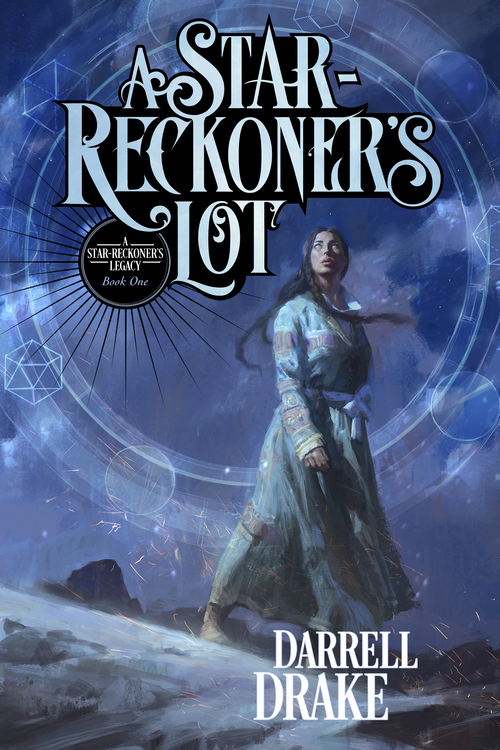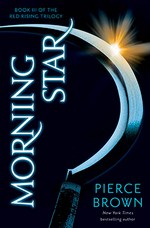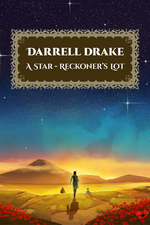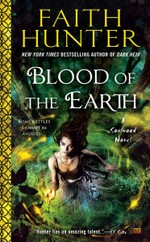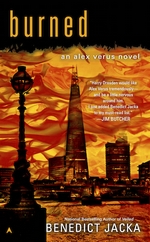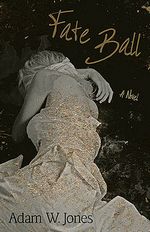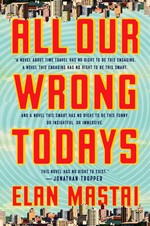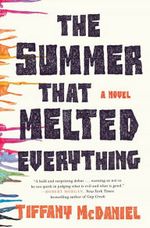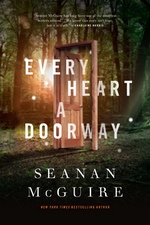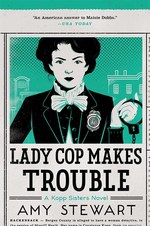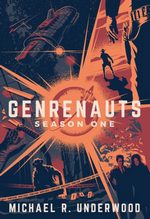This book releases this weekend, go pre-order now (well, not now … wait until you read this).
—
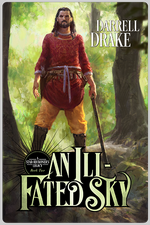 An Ill-Fated Sky
An Ill-Fated Sky
by Darrell Drake
Series: A Star-Reckoner’s Legacy, #2
eARC, 327 pg.
2018
Read: March 28 – 29. 2018

Honour, at all costs.
So steadfast in its pursuit, Tirdad had never stopped to consider that anything that had to be done at all costs, shouldn’t be done at all. For all his talk of moderation, he had never thought to apply that to honour.
Only now did it dawn on him.
I probably can’t get away with just telling you all to go buy and read this — and the first, too, if you haven’t. So I won’t try. But that’s the takeaway from this.
I’d imagine it’s quite a trick taking a very carefully plotted stand-alone novel and turning it into the first of a trilogy, and I’m often nervous about reading something like that — not so much that I wouldn’t enjoy the new book, but that it’ll take something away from my appreciation for/memory of the stand-alone. Drake has succeeded in making the book feel like something he’d planned all along and a natural outgrowth of the first novel. I can’t bring myself to talk about the events of A Star-Reckoner’s Lot in any more detail than I can the events of this book, which might make some of this awkward, but let’s give it a go…
Tirdad’s cousin has tried to resurrect herself, but the way she died prevented it, instead her memories, her abilities have attached themselves to Tirdad’s sword. He’s now a powerful planet-reckoner (who doesn’t really understand how to use his newfound power). Where some would use this as an opportunity for laughs, Drake keeps things grim and shows what happens when someone wields impossibly great power without the requisite knowledge — disaster ensues. After healing from his wounds, Tirdad sets out to understand just what happened to his cousin, what drove her to the extremes she took. Along the way, he helps and old friend and the King of Kings wage war, has some adventures, kills supernatural creatures that far outclass him, and tries to move on with his life.
A good chunk of this book is just about understanding the last novel — what really happened, what motivated the actions of all the major characters. But it’s not just a rehash, nor a revision of the book. It could probably even be read by someone who hadn’t read A Star-Reckoner’s Lot with little difficulty. But all that is in the midst of the adventuring — and the plot turns and twists enough to keep you guessing as much as Tirdad. This time, the turns weren’t quite as extreme as before, but they were still jarring — and honest, he doesn’t trick you here, everything is justified and supported by what came before.
There’s a sense in which this novel isn’t the fantasy adventure, but a profile of a hero. Or at least a good man. Not just any hero, but a particular one, Tirdad, the ways that his life, his choices, his family and friends shaped him into the person he is and what that looks like action. Particularly when it comes to the way he treats those he loves — and his enemies.
Tirdad, of course, isn’t the only character in the book. The half-div/half-human we met previously as Waray is back, too. When writing about the first book, I’d said: “The banter, the bickering, and friendship between Tirdad and Waray is one of those things that will attract you to this book” — that that’s the core relationship of this novel. What was strong before is now at the forefront — and the reader wins. I loved Waray going into this, and love her all the more now as I’ve got a much better understanding of her past and what makes her tick.
The ending features one of my favorite cliff-hangers in quite a while, to boot.
From start to finish, Drake immerses you in this wonderful world he’s created, with a magic system and mythology so foreign to most of us that it’s great to dive in and experience. The characters are rich and well-drawn, and you feel for them all.
Disclaimer: I received this eARC from the author in exchange for this post — I appreciate him saving me the money, but it didn’t alter what I said about this book.
—–



